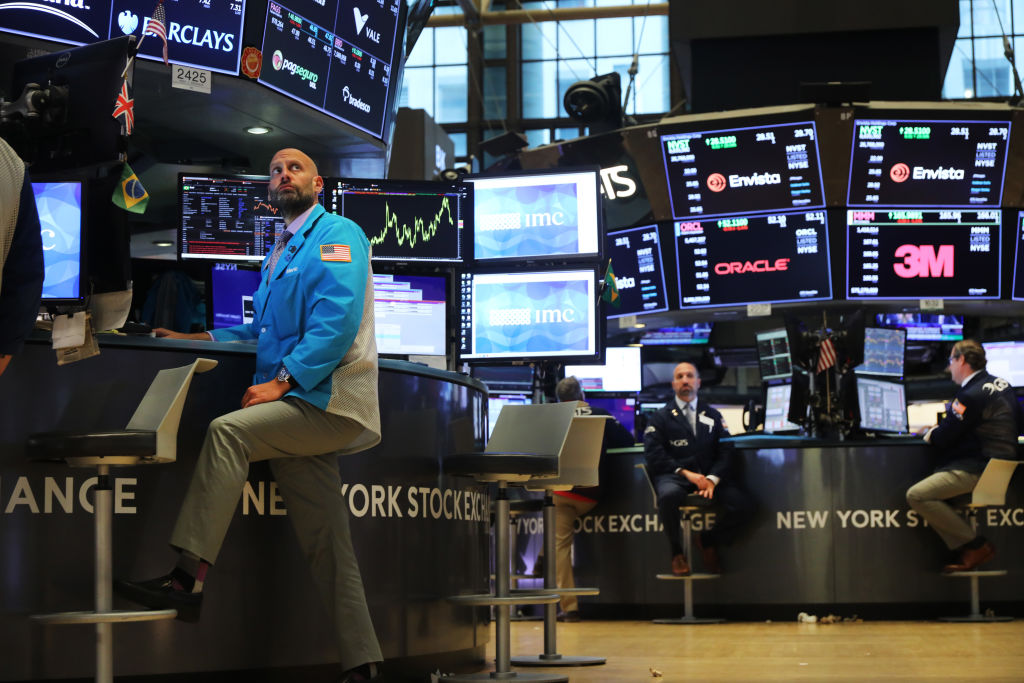Bitcoin traded flat below US$26,300 Tuesday morning in Asia. Ether also edged up but remained below the US$1,600 mark. Most other top 10 non-stablecoin cryptocurrencies, while recording marginal gains in the past 24 hours, logged losses for the week. Cardano’s ADA led the winners. Cryptos, along with global equities, face pressure from interest rate hike concerns and rising treasury yields. U.S. stock futures were flat during early morning trading in Asia after Wall Street closed higher on Monday. That rise broke a four-day losing streak triggered by hawkishness from the U.S. Federal Reserve.
Losses for short-term Bitcoin holders
Bitcoin was little changed as of 07:40 a.m. in Hong Kong, trading at US$26,276.60 for a weekly loss of 1.78%, according to CoinMarketCap data. The world’s largest cryptocurrency dropped to US$26,011.47 on Monday evening, the lowest price since Sept. 13.
Ether also remained flat. It edged up 0.35% to US$1,586.87 but is down 3.06% for the past seven days. The token touched a high of US$1,595.84 on early Tuesday morning, but failed to move above the US$1,600 resistance level.
“Cryptocurrency market sentiment remains weak, amid declines in global stock markets, a strong dollar and rising yields putting pressure on risk assets,” Hani Abuagla, senior market analyst at online trading broker XTB MENA, said in an emailed comment.
“The economic policies enacted by central banks, particularly the Federal Reserve, have redirected capital towards less risky investments such as government bonds,” said Matteo Greco, research analyst at Canada-based digital asset investment firm Fineqia International, in an emailed note.
“These bonds currently offer an attractive risk/reward ratio, offering a passive income while mitigating portfolio risk,” Greco added.
Citing data from blockchain tracker Glassnode, XTB MENA’s Abuagla noted that over 97.5% of addresses owned by short-term Bitcoin holders are posting losses — an 11 month high. Short-term holders (STH) are those traders that have bought Bitcoin over the last 155 days.
“This may mean that the pressure to sell BTC at a loss in the STH pool may be growing, as evidenced by the previous pattern of on-chain behavior (when the price fell below the average STH purchase price of BTC),” said Abuagla.
Meanwhile, Abuagla said that a drop in Bitcoin prices could be a “contrary signal” indicating an oversold market. That may present a potential accumulation opportunity for long-term investors, he added.
MicroStrategy, the U.S.-based analytics firm founded by Michael Saylor, revealed on Monday it purchased nearly US$150 million worth of Bitcoin from Aug.1 to Sept. 24 at an average price of about US$27,053 per coin.
As of Sept. 24, MicroStrategy held around 158,245 bitcoins, which were acquired at an aggregate purchase price of roughly US$4.68 billion.
“While this is bullish and shows continued faith and strong buying pressure, crypto markets didn’t really react. Ironically, MicroStrategy’s buying announcements have historically been followed by mild pull-backs instead of rises, and the crypto space might be cautious about buying,” said Justin d’Anethan, head of Asia-Pacific business development at Belgium-based crypto market maker Keyrock.
“The whole thing happens in an environment where investors are still digesting the Fed’s speech hinting at higher rates for longer, and therefore presumed lower valuations for most risk assets,” added d’Anethan.
Most other top 10 non-stablecoin cryptocurrencies posted gains for the past 24 hours. Cardano’s ADA led the winners. The token rose 1.10% to US$0.2453 but lost 2.49% for the week.
Toncoin was the only top-10 non-stablecoin token to record a 24-hour loss. It dropped 1.83% to US$2.16 for a weekly loss of 10.28%.
The total crypto market capitalization edged up 0.28% in the past 24 hours to US$1.05 trillion, while trading volume rose 40.50% to US$24.94 billion.
U.S. equities drop, China’s property woes continue

U.S. stock futures were trading lower as of 09:50 a.m. in Hong Kong. The Nasdaq led the losses with a 0.40% drop. Wall Street closed higher Monday following a sharp decline Friday.
Most major Asian stock indexes were down Tuesday morning. Hong Kong’s Hang Seng, South Korea’s Kospi and Japan’s Nikkei 225 all dipped. The Kospi led the declines with a 1.14% drop. China’s Shanghai Composite edged up 0.14%.
Both the S&P and Nasdaq indexes last Friday logged their biggest weekly losses since March. That followed U.S. Federal Reserve comments last week indicating it will keep interest rates higher for longer.
Chuck Carlson, chief executive officer at the U.S.-based investment advisor Horizon Investment Services, told Reuters Tuesday that he sees a “tug of war” dynamic playing among investors. There are now two groups, he said. Those concerned by Fed hawkishness and “bulls wondering maybe we have seen the correction and we can start to build from these levels higher.”
Key economic data releases this week include the U.S. second-quarter gross domestic output (GDP) and personal consumption expenditure price index (PCE). Both are expected Thursday. Analysts project an acceleration in U.S. GDP growth and a slowdown in core PCE, according to Investing.com.
The benchmark U.S. 10-year treasury yield rose on Monday to close at 4.542%. That was the highest closing price since October 2007.
The Fed meets on Nov. 1 to make its next decision on interest rates. The CME FedWatch Tool predicts a 81.5% chance of no interest rate hike in November, up from 74.6% on Monday. It also gives a 60.9% chance of another pause in December, up from 59.3% on Monday.
Meanwhile, the crisis at China’s real estate giant Evergrande Group worsened Monday. The firm’s mainland China unit, Hengda Real Estate Group Co., defaulted on principal and interest payments totaling about US$547 million due Sept. 25. The firm’s shares dropped 21.8% on Monday to their lowest closing level since Sept. 5.
Evergrande filed for U.S. bankruptcy protection in August 2023 after its default on a dollar bond in December 2021 triggered widespread turmoil in the Chinese real estate industry.
(Updates with equity section.)





